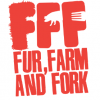Greetings,
We are exploring the option of organic processing, in addition to conventional processing, here at our oat facility.
After talking with the organic certification company, we realize that we need to have a system flush between conventional and organic production (of course).
The problem is, no one can tell us now much (quantity) flush is required...and not even a range of amounts they have observed. They just keep saying "sufficient".
So, what is "sufficient"? What have you all observed? I'm not asking for an exact amount, but how about a range?
I have experience with system product flushes from previous jobs, but we were flushing a medicated feed, and could use residue testing results to validate our flush amounts. I can't think of what I could do to validate this flush, though...any ideas?
Thanks,
Brian













